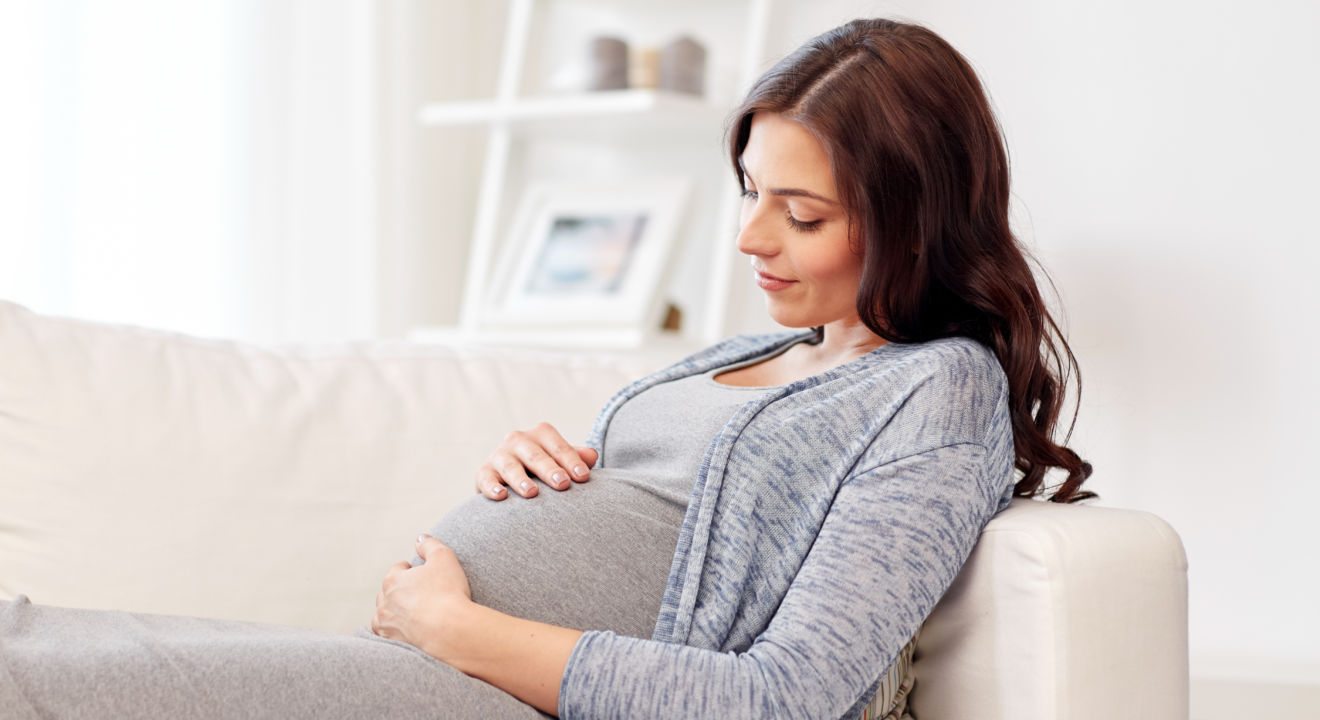Relationships October 11, 2016


You’ve purchased the baby name books, designed the nursery and researched at what weeks your baby grows from the size of an apple to a small cantaloupe. While you may feel more prepared than ever to have your baby, you could be overlooking an important factor: According to CBS News, one third of all babies born to women in the U.S. are delivered via caesarean section (c-section). Considering the stories you’ve heard about vaginal births, that may sound like a good statistic or even a sign of how medically progressive we have become.
More recent research, however, is painting a different story – one in which children born via c-section are more likely to experience health problems later in life, including childhood obesity. Here are the facts, stories and statistics every mother to-be needs to know before your due date rolls around.
The Link Between Obesity and C-Sections
How often do you see an overweight child while running errands, visiting the neighborhood park or walking to work? According to these studies, c-sections might be partially to blame – not only for childhood obesity, but also for other health problems:
The New York Times reported in 2014 that a PLOS One study, which included samples from 10 countries, discovered that babies delivered via c-section were 26 percent more likely to be overweight and 22 percent more likely to be obese than their vaginally-delivered counterparts. In addition, CBS News shared in 2015 that researchers Dr. Jan Blustein of New York University’s School of Medicine and Dr. Jianmen Liu of Peking University found nine studies that link c-sections with obesity, 20 that linked it with type one diabetes and 23 that linked it with asthma.
Further research from the journal Archives of Disease in Childhood found that, by age three, children delivered by c-section were twice as likely to be obese than children birthed vaginally. In an article for The Conversation, Dr. Jan Blustein, after reviewing 50 studies on the topic and comparing them to the U.S. population, estimated the obesity rate for children as 19.4 percent when delivered via c-section and 15.8 percent when delivered vaginally.
Possible Explanations
The numbers are there. But how do c-sections correlate with childhood obesity and other health problems? As The Conversation explains, there are several proposed theories.
First, Dr. Jan Bluestein points out an important consideration: Women who have c-sections instead of undergoing natural births may not be healthy to begin with. As a result, less healthy babies could be a product of less healthy mothers – not the way the babies are delivered.
At the same time, some believe babies delivered via c-sections lack the “positive stress of labor” that, in a way, trains a baby’s genes. The “trainers”? Hormones like oxytocin, cortisol and adrenalin. When these “gene” trainers don’t work as intended, they create epigenetic changes (changes in gene behavior) that could increase a child’s risk of disease later in life.
Now, let’s take a trip back to biology class. Remember discussing the human “microbiome”? The microbiome is like the ecosystem of our intestines. Just like Earth’s ecosystem can be thrown out of balance animals or plants go extinct, humans need their own set of diverse bacteria to be healthy. When babies pass through the vaginal canal, they are exposed to maternal bacteria, which then colonize the babies’ intestines. With c-sections, however, babies miss that exposure and instead receive bacteria from the hospital environment. Considering that bacteria are essential for food uptake and fighting infections, lacking in that bacteria could help explain the worse health of c-section babies.
Before swearing to never undergo a c-section, though, you should consider a report from The Atlantic, which shares two other new studies that examined babies’ stool samples from birth to age three. Researchers discovered that a type of bacteria known as “bacteroides” was missing from many c-section infants – but it was also missing from one fifth of vaginally delivered babies.
One of the researchers, Ramnik Xavier, later published a paper linking infants’ high levels of bacteroides with worse health. In his paper, he explains that high levels of bacteroides seem to prevent childrens’ immune systems from acclimating to encountered microbes. Why does that matter? Less learned resistance to bacteria means higher cases of autoimmune diseases.
The Atlantic also shares one of the largest microbiome studies to date, which concluded that, while c-sections do initially change babies’ microbiomes, the bacteria rally and recover. In fact, the study found that adult microbiomes aren’t impacted by c-sectional delivery. Researchers have been quick to point out, however, that bacterial disturbances during infancy – even if recoverable – likely have significant effects on the babies’ future microbiomes and overall health.
The Bottom Line
To sum this all up? Plenty of research has shown possible correlations between childhood obesity and c-sections. At the same time, however, these health problems could instead stem from the woman’s health. Also, even though some research gives a thumb’s up to the idea of a disrupted bacterial ecosystem causing childhood obesity, other studies have shown that the correlation is much more complicated than we might have first believed.
So how can a mom make the right choice on the type of delivery she undergoes? According to The Conversation, several influential medical groups in the U.S. and in the UK now advise healthy women with low-risk pregnancies to deliver vaginally. However, as Matthew J. Hyde, research associate at Imperial College London tells the New York Times, “If a C-section is needed for clinical reasons, you’ve got no choice.”
Whatever your decision, make sure you research the positives and negatives of both delivery methods. You’ve probably heard the saying that knowledge is power – in this case, it could give you the power to help shape your baby’s future health.